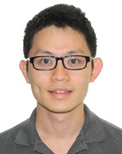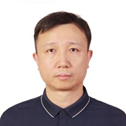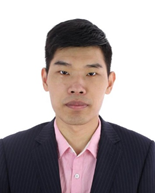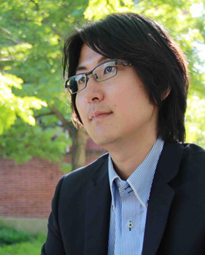
Topic 1: Advanced Coding Technology
| Huazi Zhang Research Engineer Huawei Technologies Co., Ltd. Title: Advanced Polar Coding Abstract: This talk highlights key breakthroughs in polar coding over the last decade. We show that polar codes, once limited to short messages, are competitive for large data blocks in the low-complexity regime. We discuss their potential for improved hardware, new algorithms that boost reliability with minimal overhead, and methods to reduce complexity for high-throughput applications. We also present a breakthrough in IR-HARQ systems that uses polar codes for flexible retransmissions. Together, these advances establish polar codes as a versatile solution for the diverse requirements of wireless communications. Biography: Huazi Zhang (Senior Member, IEEE) received his B.Sc. and Ph.D. degrees from Institute of Information and Communication Engineering in 2008 and 2013, respectively, from Zhejiang University. From 2011 to 2013, he was a visiting researcher with the Department of Electrical and Computer Engineering, North Carolina State University, Raleigh, NC, USA. From 2013 to 2014, he was a Research Fellow with the School of Computer Engineering, Nanyang Technological University, Singapore. From 2014 to 2015, he was a Research Scholar with the Department of Electrical and Computer Engineering, University of Florida, Gainesville, FL, USA. He joined Huawei Technologies Co., Ltd in 2015. Since then, he has engaged in research projects on advanced wireless communications involving channel coding and signal processing techniques, and engaged in multiple standardization activities. His contribution led to the adoption of many state-of-the-art research results into 5G standards, as well as the subsequent commercial rollout. His current research interests are channel coding, information theory and signal processing for wireless communications, with focus on theoretical analysis, algorithm design and hardware implementations for 5G and beyond. |
Topic 2: Semantic Communication
| Wenyi Zhang Professor University of Science and Technology of China Title: Semantic Information Theory: Rate-distortion Approaches Abstract: Of late, it has been widely recognized that incorporating semantic aspects of information is a promising direction for future communication systems. A basic idea of realizing semantic communication is representing and processing information under the criterion of accomplishing tasks or achieving goals, instead of the conventionally adopted criterion of simply reproducing the original information. In this regard, rate-distortion theory and its variants are suitable theoretical tools to provide general, flexible, and versatile approaches. We will start with a brief review of rate-distortion theory, explain how its principles can be applied to establish a framework for semantic communication, and illustrate a series of case studies that provide insights in theory and relevance in applications. We will conclude this mini-tutorial with a discussion about possible future directions and open problems. Biography: Wenyi Zhang received the bachelor's degree in automation from Tsinghua University, Beijing, China, in 2001, and the master's and Ph.D. degrees in electrical engineering from the University of Notre Dame, Notre Dame, IN, USA, in 2003 and 2006, respectively. He is currently a Professor with the Department of Electronic Engineering and Information Science, University of Science and Technology of China, Hefei, China. His research interest primarily lies within the general domain of information theory and coding. He is currently an Editor of IEEE Transactions on Communications and IEEE Transactions on Information Theory. |
| Jie Li Senior Researcher Huawei Technologies Co., Ltd., Hong Kong Title: Coding for Distributed Storage: Past, Present, and Future Abstract: This tutorial provides a comprehensive overview of the evolution of coding techniques in distributed storage systems. We will begin by examining the historical foundations of coding theory and then explore state-of-the-art coding techniques, including regenerating codes and locally repairable codes (LRCs), emphasizing their impact on data reliability and storage efficiency. Following this, we will shift our focus to critical metrics relevant to practical applications, such as sub-packetization levels and disk I/O performance. Looking ahead, we will discuss emerging trends and future directions in coding for distributed storage, considering the challenges posed by the ever-increasing volume of data and the need for efficient, fault-tolerant solutions. By the end of the tutorial, attendees will gain a well-rounded perspective on the past, present, and future of coding for distributed storage, equipping them with the knowledge to navigate this dynamic field. Biography: Jie Li received his Ph.D. in Information Security from Southwest Jiaotong University, Chengdu, China, in 2017. From 2015 to 2016, he was a Visiting Ph.D. Student in the Department of Electrical Engineering and Computer Science at The University of Tennessee at Knoxville, USA. From 2017 to 2021, he served as a Post-Doctoral Researcher, first in the Department of Mathematics at Hubei University, Wuhan, China, and later in the Department of Mathematics and Systems Analysis at Aalto University, Finland. Currently, he is a Senior Researcher at the Theory Lab of Huawei. His research interests include coding for distributed storage and secure distributed computing. Dr. Li received the IEEE Jack Keil Wolf ISIT Student Paper Award in 2017. |
Topic 3: Cryptography and Information Theory
| Shun Watanabe Associate Professor Tokyo University of Agriculture and Technology Title: Information-theoretic Cryptography Abstract: The modern cryptography is roughly categorized into computational cryptography and information-theoretic cryptography. Although the computational cryptography has been widely used in practice, its security relies on certain computational assumptions. On the other hand, the information-theoretic cryptography seeks to build protocols that are secure without any assumptions on adversary's computational power, and it has been actively studied since the landmark paper by Shannon. Furthermore, some of information-theoretic concepts and tools are used in the computational cryptography as well. In this talk, we provide an overview of the field of information-theoretic cryptography. Particular focus will be on how correlated resources shared among the parties enable us to build information theoretically secure protocols. We also present a few technical tools used in that purpose, such as the universal hash family and leftover hash lemma. Biography: Shun Watanabe received the B.E., M.E., and Ph. D. degrees from the Tokyo Institute of Technology in 2005, 2007, and 2009, respectively. From 2009 to 2015, he was an assistant professor at the University of Tokushima. From 2013 to 2015, he was also a visiting assistant professor at the University of Maryland. Since 2015, he has been an associate professor at Tokyo University of Agriculture and Technology. From 2016 to 2020, he served as an Associate Editor for the IEEE Transactions on Information Theory. He was a general co-chair of the 2021 IEEE Information Theory Workshop. From 2022 to 2024, he was a member of the Board of Governor of IEEE Information Theory Society. He served as an IEEE Information Theory Society Distinguished Lecturer in 2023 and 2024. |



